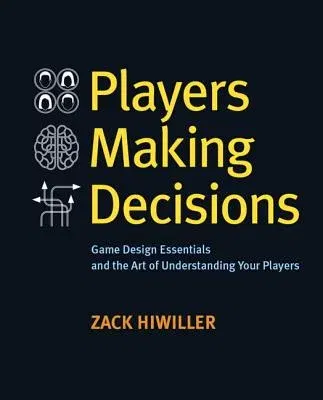Game designers today are expected to have an arsenal of
multi-disciplinary skills at their disposal in the fields of art and
design, computer programming, psychology, economics, composition,
education, mythology--and the list goes on. How do you distill a vast
universe down to a few salient points?
Players Making Decisions brings together the wide range of topics that
are most often taught in modern game design courses and focuses on the
core concepts that will be useful for students for years to come. A
common theme to many of these concepts is the art and craft of creating
games in which players are engaged by making meaningful decisions. It is
the decision to move right or left, to pass versus shoot, or to develop
one's own strategy that makes the game enjoyable to the player. As a
game designer, you are never entirely certain of who your audience will
be, but you can enter their world and offer a state of focus and
concentration on a task that is intrinsically rewarding.
This detailed and easy-to-follow guide to game design is for both
digital and analog game designers alike and some of its features
include:
- A clear introduction to the discipline of game design, how game
development teams work, and the game development process
- Full details on prototyping and playtesting, from paper prototypes to
intellectual property protection issues
- A detailed discussion of cognitive biases and human decision making as
it pertains to games
- Thorough coverage of key game elements, with practical discussions of
game mechanics, dynamics, and aesthetics
- Practical coverage of using simulation tools to decode the magic of
game balance
- A full section on the game design business, and how to create a
sustainable lifestyle within it

